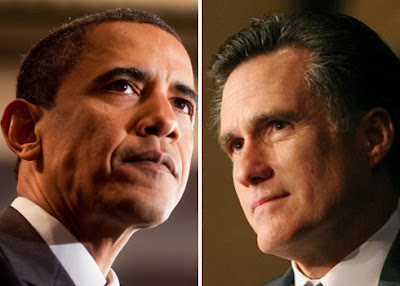
The Department of Black Studies held a forum called “Race and the 2012 Presidential Election,” on Tuesday, Oct. 23 in Lecture Center 102 to address issues of race in this election cycle.
Black Studies professors presented their observations about the implications of race in society from both current and historical standpoints. The floor was then opened for attendees to ask the panel questions and kick off the discussion.
The goal of the program was not to tell people how to vote, but to provide an interdisciplinary discussion and to generate critical insight and feedback on the issues surrounding race, media and the election, Black Studies Assistant Professor Dr. Karanja Keita Carroll said.
Carroll’s presentation focused on race being used as a device by both parties to manipulate votes. Carroll said that he has been critical of Obama and his policies since he took office, though he said most people of color are not.
“People of African descent are in a delusional state and are looking at [Obama] to boost their self-esteem, not looking at the social issues he’s not engaged in,” Carroll said.
Carroll also spoke about the racial tension building up in the United States since Obama’s election, noting comments like “keep America white” and postings in the south that read “put the white back in the White House.”
Department of Black Studies Chair and Associate Professor Dr. Major Coleman is a political scientist trained in quantitative methods of evaluating American politics. He said he used his findings to discuss racial polarization in electoral politics.
Coleman said the issue of racial equality is not seriously on the agenda of either major party.
“The GOP party platform, unlike in 2008, does mention that the GOP will support federal laws against discrimination. This is a big improvement,” Coleman said. “However, GOP failure to mention and support affirmative action — which is also lawful — is deplorable.”
Coleman said that Obama could have funded the U.S. Equal Employment Opportunity Commission (EEOC) to show support for the black community, but has not done so.
Fourth-year political science major Josette Ramnani said that although it was important to engage in the discussions, they did not change her views.
“I thought Coleman and Carroll made some great points — we have to be critical of our president and can’t just stand behind him because he’s black,” Ramnani said. “It’s up to us to apply pressure and hold him accountable.”
Ramnani said that even though the professors presented reasons to doubt his commitment to the black community, she has to believe that Obama ultimately represents hope.
Carroll said each fall semester the Department of Black Studies tries to hold similar discussions including all faculty members to introduce them to the campus community and to provide discussions that will allow students to be “thought and opinion leaders of the future.”
“Race and culture are central to everyone’s lived reality,” Carroll said. “The attempt by many to argue that we are in an age of post-racism flies in the face of the lived reality of people of color and white people as well. Furthermore, these types of discussions allow all of us to become more conscious and aware of our interrelated realities.”

